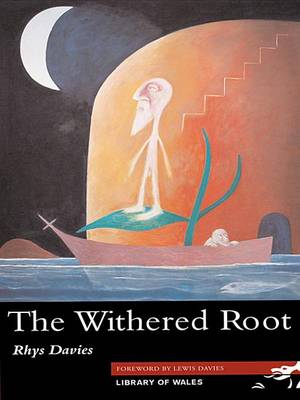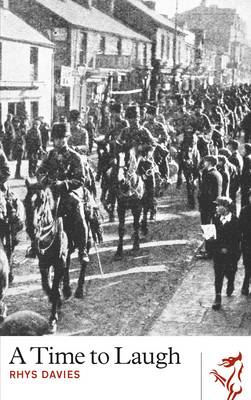Library of Wales
2 primary works
Book 12
The Withered Root recounts the troubled life of Reuben Daniels, reared in a south Wales industrial valley, in the bosom of the Nonconformist culture. Therein lies his downfall and that of his people, for The Withered Root is as thoroughly opposed to Welsh Nonconformity as My People (Caradoc Evans), though for different reasons. Revivalist passions constitute nothing but a perverse outlet for an all too human sexuality which chapel culture has otherwise repressed. Nonconformity has withered the root of natural sexual well-being in the Welsh, and then feeds off the twisted fruits.
Book 39
'Tumult and disorder, frustration, wages, strikes, riots, debts - were these to be his world? Ugliness, squalor and meanness was their portion. And yet, and yet ...They had the full tarnished brilliance of life in them. And he began to laugh, with a soft low sound, half caught in his throat.' The second novel in the Rhondda Trilogy - 'the most sustained literary examination of Welsh industrial history ever published and certainly the least ideologically distorted' - A Time to Laugh (1937) is set in a coal-mining valley on the eve of the 20th century. It is set against a background of industrial unrest and social change. The old certainties of pastoral Rhondda have given way to a new age of capital and steam, and life in the Valley has been transformed by strike, riot and gruelling poverty. The central character is Dr Tudor Morris, whose ancient estate has been sold to one of the railway companies opening up the Rhondda for the purpose of extracting coal and taking it down the Valley to the docks in Cardiff. The doctor abandons his class and seeks personal salvation among the poor.
Although expressly radical in its sympathy for the working class, the novel also finds a place for local tradespeople, the small shopocracy to which Davies's family (grocers in Blaenclydach near Tonypandy) belonged: they remain neutral, non-political, with their livelihoods threatened, hapless bystanders in the social upheaval of the day. Like Rhys Davies himself, they are mere observers of the strike, which is based on the Haulers' Strike of 1893 and the Cambrian Combine Lock-out, here set in December 1899, that led to the famous Tonypandy Riots of 1910. The novel's emphasis is on collective responsibility rather than personal revolt as depicted in Davies's earlier novels, though he remains wary of Socialist ideology and the mentality it breeds. As for the Communists, they are seen as propagandists rather than the socially vital force they actually were in places like 'red Rhondda'.
Although expressly radical in its sympathy for the working class, the novel also finds a place for local tradespeople, the small shopocracy to which Davies's family (grocers in Blaenclydach near Tonypandy) belonged: they remain neutral, non-political, with their livelihoods threatened, hapless bystanders in the social upheaval of the day. Like Rhys Davies himself, they are mere observers of the strike, which is based on the Haulers' Strike of 1893 and the Cambrian Combine Lock-out, here set in December 1899, that led to the famous Tonypandy Riots of 1910. The novel's emphasis is on collective responsibility rather than personal revolt as depicted in Davies's earlier novels, though he remains wary of Socialist ideology and the mentality it breeds. As for the Communists, they are seen as propagandists rather than the socially vital force they actually were in places like 'red Rhondda'.

